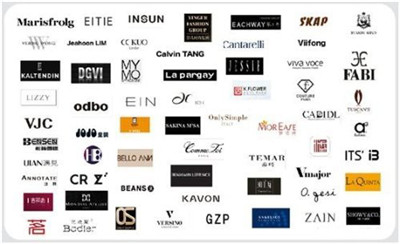One year on since new trade mark laws took effect in China and there is little evidence to show it is becoming any easier for global brands to enforce their rights in the country. The new laws and practices were intended to make it easier to enforce trade mark rights and provide greater levels of transparency and accountability surrounding intellectual property (IP) infringement.
中国新商标法生效一年来,几乎没有迹象显示国际品牌在华行使自己的权利正变得哪怕是略微容易一些。新法规的初衷在于,降低行使商标权的难度,并在侵犯知识产权问题上提供更大透明度和更有力的问责。
It’s easy to understand why an increasing number of western companies are looking to take advantage of the Chinese market as e-commerce sales have recently rocketed, outpacing the US. However, some companies are still finding it difficult to protect their brands in China.
随着最近中国电商销售飞涨的速度超过美国,我们很容易理解为什么越来越多的西方企业想搭上中国市场的顺风车。然而,一些企业依然发现很难在中国保护自己的品牌。

In theory, trade mark protection in China should now be more straightforward but there are a number of significant pitfalls that businesses might not be aware of.
理论上,如今中国的商标保护应该更简单明了,但在这方面仍存在许多企业或许没有意识到的巨大陷阱。
When registering a trade mark internationally, most companies will file for protection in China using the International Trade Mark System run by the World Intellectual Property Organisation (WIPO). This should provide them with the same rights and protection as registering a trade mark in China. However, without a registration certificate written in Chinese, businesses are likely to find it difficult to enforce their rights.
在国际上注册商标时,多数企业都会利用世界知识产权组织(World Intellectual Property Organisation)管理的国际商标体系(International Trade Mark System)申请在华受保护。这理应为它们提供与在华注册商标相同的权利和保护。但是,如果手中没有一份中文的商标注册证,这些企业很可能会发现很难行使自己的权利。
There are other pitfalls that western businesses need to be aware of. For example, using the registered trade mark symbol ® without having a valid trade mark registered for the brand name in China could result in a fine equivalent to 20 per cent of the company’s turnover.
西方企业还需要注意一些别的陷阱。例如,如果企业使用了注册商标标志®,却没有在中国为该品牌名称注册有效的商标,可能会招致相当于该企业年营业额20%的罚款。
Most companies are not aware that this is an offence that is strictly enforced by the Chinese government and some are finding that their goods are being counterfeited and registered in China, but are not able to prevent infringement because they do not have a Chinese version of their trade mark.
大多数企业没有意识到这是一种受到中国政府严格监管的违法行为。另外,一些企业发现自己的产品在中国被伪造并被注册,但它们却无法阻止这些侵权行为,因为它们没有中国版商标。
A recent example of this rule being applied is the case of French wine company, Castel, being hit with a $5m fine for trade mark infringement. Castel had been using ‘Ka Si Li’, the Chinese translation, for its marketing in China but had failed to obtain a Chinese trade mark.
最近一个应用该规定的例子是,法国红酒公司卡思黛乐(Castel)因商标侵权行为而被处以500万美元罚款。卡思黛乐此前一直使用中文译名“卡斯特”在华销售,但没能搞到中国版商标。
This created a window of opportunity for the owner of a Shanghai-based wine company who recognised the popularity of the product and registered the trade mark itself. When discovering that Shanghai Banti Wine and its owner Li Daozhi had been using the name ‘Ka Si Li’ to sell its wine, Castel attempted to get his trade mark revoked but failed and instead they were fined for infringement.
这给上海一家红酒公司的所有人创造了可乘之机,这个人知道该产品的知名度,并注册了这一商标。当发现上海班提酒业公司及其所有人李道之一直在使用“卡斯特”的名字销售红酒后,卡思黛乐试图让有关部门撤销李道之的商标,但未能成功,卡思黛乐反而因商标侵权被处以罚款。
Counterfeit goods can have a detrimental effect on sales and brand image and, in order to combat this, western companies need to ensure they have trade marks in place for marketing they intend to use in China.
冒牌商品可对正品的销量及品牌形象造成不利影响。为防止这种情况,西方企业需要确保搞到它们打算在中国用于营销的商标。
The number of trade mark registrations in China has significantly increased in the past year as businesses hope to tap into the thriving marketplace but awareness of trade mark rules is still patchy. If western companies wish to take their products to market in China they need to be aware of the potential pitfalls and seek advice before doing so.
由于企业希望打入蓬勃发展的中国市场,过去一年里,在华商标注册数量显著增加。但企业对中国商标法规的认识仍不完善。如果西方企业希望在中国销售其产品,它们需要意识到可能存在的陷阱,并在付诸行动前寻求意见。
In terms of enforcement, China’s State Administration for Industry and Commerce (SAIC) have a significant number of officials who will enforce intellectual property rights on behalf of western companies relatively cheaply, but selecting the right person, with the right experience to act for a business can be difficult and may require on-the-ground knowledge.
在执法方面,中国国家工商行政管理总局中有很多官员会以相对便宜的费用代表西方企业行使其知识产权,但选择拥有适当企业代理经验的正确人选可能并非易事,或许需要实地了解。













